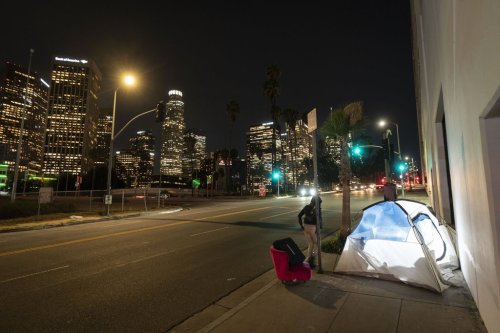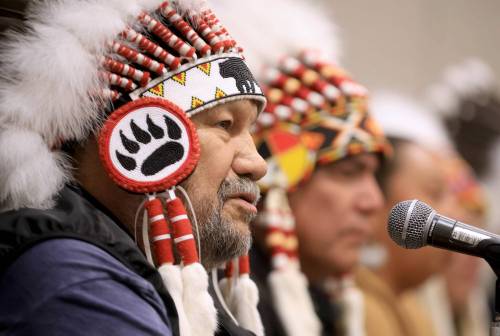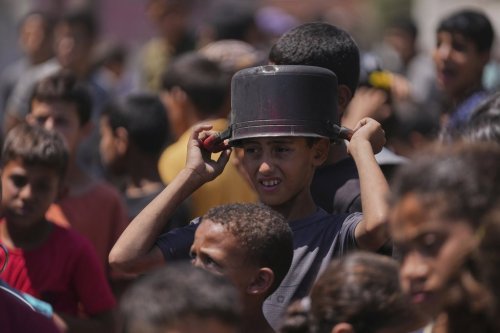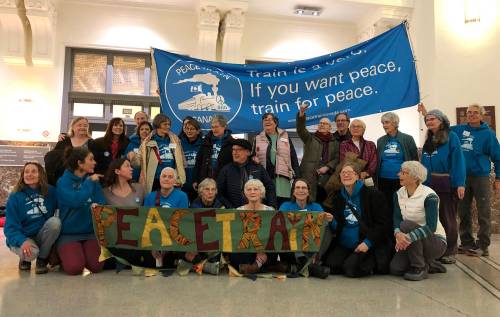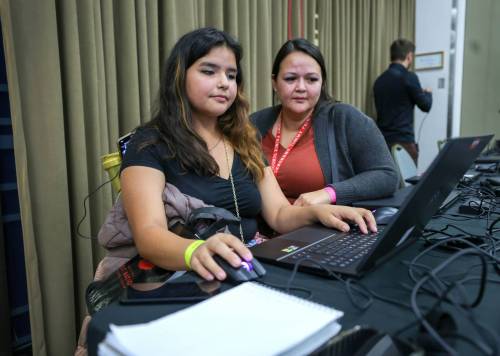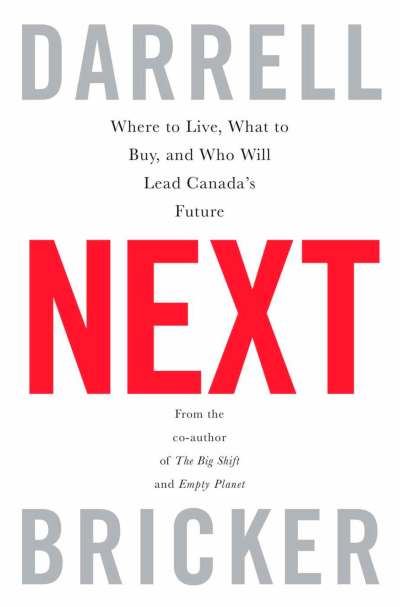Global Issues
Please review each article prior to use: grade-level applicability and curricular alignment might not be obvious from the headline alone.
Local engineer was a real game changer
6 minute read Preview Saturday, Sep. 13, 2025A Lebanese dancer defies extremist threats and social norms with his sold-out performances
6 minute read Preview Friday, Oct. 10, 2025Nepal internet crackdown part of global trend toward suppressing online freedom
5 minute read Preview Friday, Oct. 10, 2025Most US adults think individual choices keep people in poverty, a new AP-NORC/Harris poll finds
6 minute read Preview Wednesday, Oct. 15, 2025For elders with dementia, youth with anxiety, or evacuees coping with displacement, smoke is not just a public health irritant. It’s an accelerant for mental health issues.
You can’t put an N95 on your brain. You can’t tell your nervous system to calm down when the air outside looks like dusk at noon.
For older adults, people with asthma, families on fixed incomes, or those living in crowded apartments or trailers, wildfire season in Manitoba is more than just a nuisance. It’s a trigger. Of breathlessness. Of panic. Of helplessness.
And every year, the advice is the same:
Hydro rejects generator option for evacuated community
4 minute read Preview Friday, Sep. 5, 2025The Canadian government, mining and human rights
5 minute read Saturday, Aug. 30, 2025Environmentally speaking, foreign mining companies are often more concerned about extracting profits than they are about protecting the local ecological space. There have been innumerable cases of these extractive businesses releasing dangerous chemical pollutants into the air, causing physical damage to nearby homes through soil and bedrock disturbances and dumping mining effluent that poisons local drinking water systems.
Amid geopolitical uncertainty, Manitoba poised to become a hub for increased efforts to assert Canada’s Arctic sovereignty
21 minute read Preview Friday, Aug. 29, 2025Being Muslim and American in the nation’s heartland
7 minute read Preview Saturday, Jan. 31, 2026‘Love Island’ revives conversation about racial bias and misogynoir in dating
7 minute read Preview Friday, Oct. 10, 2025‘She’s all of us’: mural illustrates ties between Winnipeg and grateful Ukrainian newcomers
3 minute read Preview Monday, Jun. 9, 2025What is a famine and who declares one?
4 minute read Preview Friday, Oct. 10, 2025Infill housing is not the enemy of nature
5 minute read Preview Thursday, Mar. 20, 2025Anti-racism activist hopes to make our communities mutually respectful
7 minute read Preview Monday, Feb. 24, 2025Peacemaking and Canada’s international reputation
5 minute read Preview Saturday, Nov. 23, 2024Esports competitions motivating force for First Nations students, educators say
5 minute read Preview Monday, Oct. 30, 2023Study shows ‘striking’ number who believe news misinforms
3 minute read Preview Thursday, Dec. 4, 2025Canadian demographics impact cultural shifts
3 minute read Preview Saturday, May. 2, 2020‘We can set the agenda:’ Carney continues middle power pitch in Australia
3 minute read Preview Updated: 11:11 AM CSTPrecedent-setting Treaty 1 case wraps up
5 minute read 2:00 AM CSTA precedent-setting trial that wrapped up in Winnipeg’s Court of King’s Bench at the end of February has called for a court to determine, for the first time in 150 years, whether the value of Treaty 1 annuities is subject to an increase after being frozen at $5 per person since 1875.




